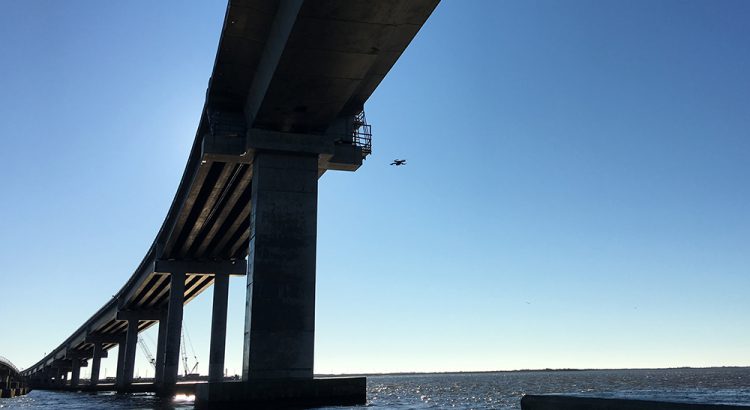North Carolina transportation engineers will soon be able to inspect and monitor construction sites more safely and efficiently using docked drones flown by pilots not located at the construction site.
That’s because the N.C. Department of Transportation has received a first-of-its kind waiver from the Federal Aviation Administration to remotely launch and fly drones beyond the pilot’s visual line of sight for construction project inspections.
Once NCDOT completes safety testing, it plans to place drones in docking stations at projects sites across the state and use the drones to remotely monitor and provide progress reports on transportation construction projects.

“This FAA waiver allows us to monitor project sites from anywhere, anytime, without the need for drone pilots to drive to sites and set up drone systems to capture and stream images,” said Becca Gallas, director of the NCDOT’s Division of Aviation, which manages the agency’s use of drones. “That will save time and money and increase the safety of our employees by removing the risk associated with this fieldwork.”
This latest FAA waiver follows a 2020 waiver that allowed NCDOT to become the nation’s first state transportation agency to inspect bridges using drones beyond the visual line of sight of the pilot.
NCDOT Division of Aviation is piloting the use of docked drones with the private firm Skydio, one of 18 partners in its BEYOND program. NCDOT is one of eight U.S. teams testing and demonstrating how drones can be safely used for business and government purposes to inform the Federal Aviation Administration’s regulation of these rapidly advancing technologies.
By harnessing the power of remote drone operations, the Division of Aviation remains steadfast in its mission to provide cost-effective, safe and cutting-edge solutions for North Carolina’s transportation and infrastructure needs.
“This is a new tool for our toolkit,” Gallas said. “Our pilot program will serve as an example of the transformative potential of remote drone operations, ensuring the continued advancement of our state’s infrastructure projects.”




